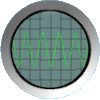 |
VO-BB - 20 YEARS OLD!
Established November 10, 2004
|
| View previous topic :: View next topic |
| Author |
Message |
D Voice
Been Here Awhile

Joined: 26 Jun 2010
Posts: 233
|
 Posted: Wed Aug 17, 2011 8:41 pm Post subject: Hi-Pass Filterin' Posted: Wed Aug 17, 2011 8:41 pm Post subject: Hi-Pass Filterin' |
 |
|
Specifically, I was doing a non-critical recording with a SP C-1 into a PreSonus TubePre (with the -pad on) into a USB mixer.
All 3 have items in the chain have High Pass roll-off switches
But it brings up a generic question:
Where to do the high-pass filtering? And is this a hard-and-fast rule, or does it depend on the equipment.?
For one reason or another, I have been led to believe that:
a) you don't want to do the filtering on more than 1 outboard device
b) you want to do the filtering at first item in the chain (the mic if it has one; otherwise the pre-amp).
If so, why?
Are these both ALWAYS true, and if not, when/why not?
I guess in normal conditions, it is rumble and vibrations that is best to filter out those.
But do the (tube-ish) mic pre's possibly create some noise at the low end that should be attenuated at the pre or at the mixer?
TIA |
|
| Back to top |
|
 |
Mike Sommer
A Hundred Dozen

Joined: 05 May 2008
Posts: 1222
Location: Boss Angeles
|
 Posted: Wed Aug 17, 2011 10:03 pm Post subject: Re: Hi-Pass Filterin' Posted: Wed Aug 17, 2011 10:03 pm Post subject: Re: Hi-Pass Filterin' |
 |
|
| Quote: | | Where to do the high-pass filtering? |
Generally Mic Rolloff Switches were once intended to be used when mics are used out doors, particularly on windy days, or if you are in a very boomy room or there are any low frequency noise in the background, the rolloff can cut most of that out.
Personally I've never used a mic's rolloff switch, I will use the rolloff on a mixer before I use a mic's. Why? That's just me, and I know the frequency rolloff of the mixer better then I do all the mics.
Let's understand, there is noting useful in the human voice below 80Hz, if you hear a difference in your vocals when you use an 80 or 75Hz highpass or rolloff, more than likely it is room resonance and bass build up, and your room needs treatment.
If we use compression on vocals, we want to use a Highpass or rolloff before the audio goes into the compressor, so the compressor does not "Pump" or compress to the powerful bass frequencies.
| Quote: | | And is this a hard-and-fast rule, or does it depend on the equipment.? |
No, just do what sounds good: Record, Listen, and Compare your audio files. Learn what sounds good and what does not. If you need help, run it by us.
| Quote: | | a) you don't want to do the filtering on more than 1 outboard device |
If you can do that, and have the proper gear and it sounds good - do it out board first. I've always said, develop your sound outside the computer first. One you're all dialed in, all you need to do is simply record, do a few edits and go.
| Quote: | | b) you want to do the filtering at first item in the chain (the mic if it has one; otherwise the pre-amp). |
Sometimes yes and sometimes no. Just do what sound the best. I generally roll off after the preamp, before it goes into an outboard compressor. If you are going directly into the DAW you can rolloff before it goes in. Or you can do it in the DAW.
General rule of thumb:
Anytime you want to take away something do it before the compressor If you want to add something (EQ boost echo etc..) do it after the compressor.
| Quote: | | Are these both ALWAYS true, and if not, when/why not? |
Nothing is right or wrong- there may be a better way of doing something but there is never a Best Way. Do what sounds good to you.
| Quote: | | I guess in normal conditions, it is rumble and vibrations that is best to filter out those. |
Of course!! that goes without saying.
| Quote: | | do the (tube-ish) mic pre's possibly create some noise at the low end that should be attenuated at the pre or at the mixer? |
Depends. Sometimes they can add roundness and fullness, they can be tubby, sometimes they can sound thin. BUT they only work with the frequencies that are given to them. If pushed tubes can even create there own compression, which gives the illusion of more bass, but it's only the compression increasing the quieter parts. That's what compression does.
_________________
The Blog:
http://voiceoveraudio.blogspot.com/
Acoustics are counter-intuitive. If one thing is certain about acoustics, it is that if anything seems obvious it is probably wrong. |
|
| Back to top |
|
 |
georgethetech
The Gates of Troy

Joined: 18 Mar 2007
Posts: 1878
Location: Topanga, CA
|
 Posted: Wed Aug 17, 2011 11:25 pm Post subject: Posted: Wed Aug 17, 2011 11:25 pm Post subject: |
 |
|
In other words, what Mike's sayin' is "if it sounds good, it IS good".
There are no hardset rules when it comes to this stuff. Record versions with of the different HFP's engaged and listen... Don't trust your ears? Post 'em here.
_________________
If it sounds good, it is good.
George Whittam
GeorgeThe.Tech
424-226-8528
VOBS.TV Co-host
TheProAudioSuite.com Co-host
TriBooth.com Co-founder |
|
| Back to top |
|
 |
D Voice
Been Here Awhile

Joined: 26 Jun 2010
Posts: 233
|
 Posted: Thu Aug 18, 2011 12:00 am Post subject: Posted: Thu Aug 18, 2011 12:00 am Post subject: |
 |
|
Thank you, gentleman.
So I am trying to get my head around this.
Where in the circuitry does the high-pass filter affect the signal? Before it is amplified, or after?
I guess an example would be, a pre-amp:
if the preamp were adding adding any low end noise, would the hi-pass filter reduce that, or only noise that comes down the line from the mic? |
|
| Back to top |
|
 |
|
|
You cannot post new topics in this forum
You cannot reply to topics in this forum
You cannot edit your posts in this forum
You cannot delete your posts in this forum
You cannot vote in polls in this forum
|
Powered by phpBB © 2001, 2005 phpBB Group
|


